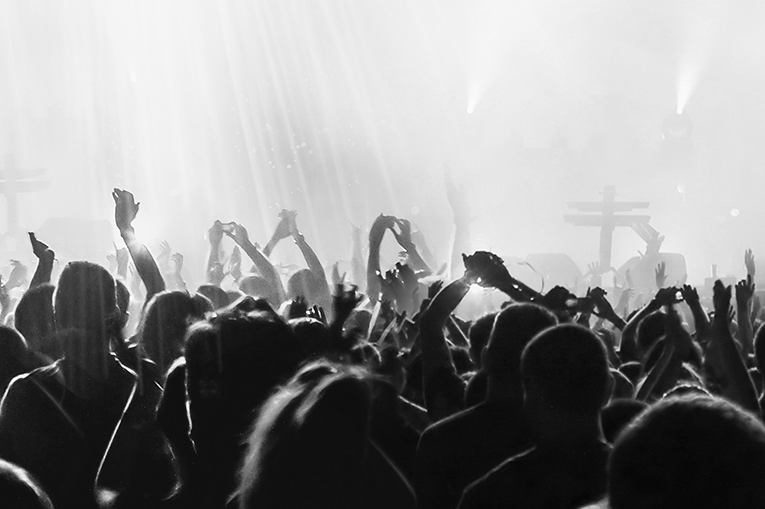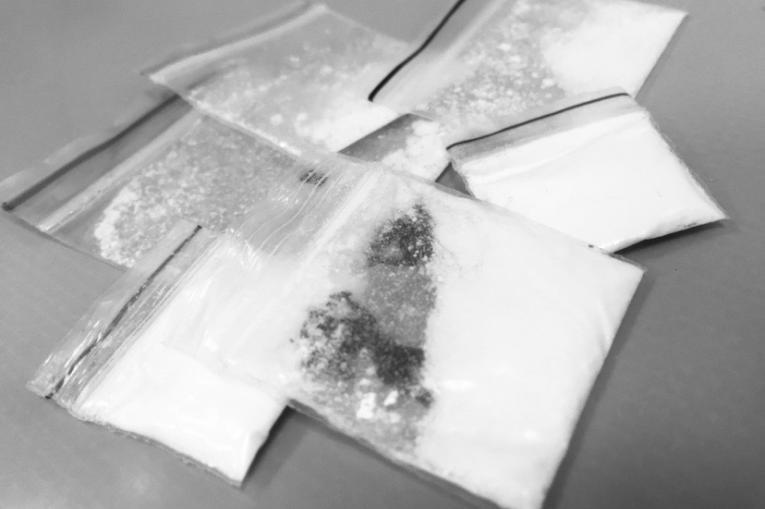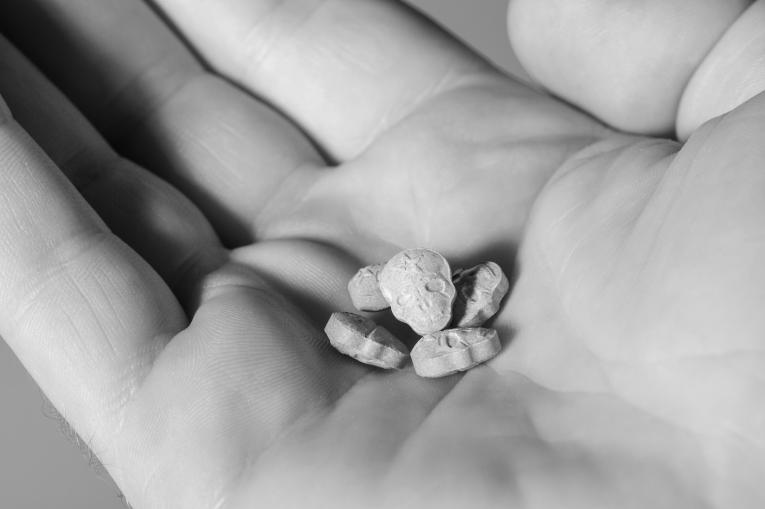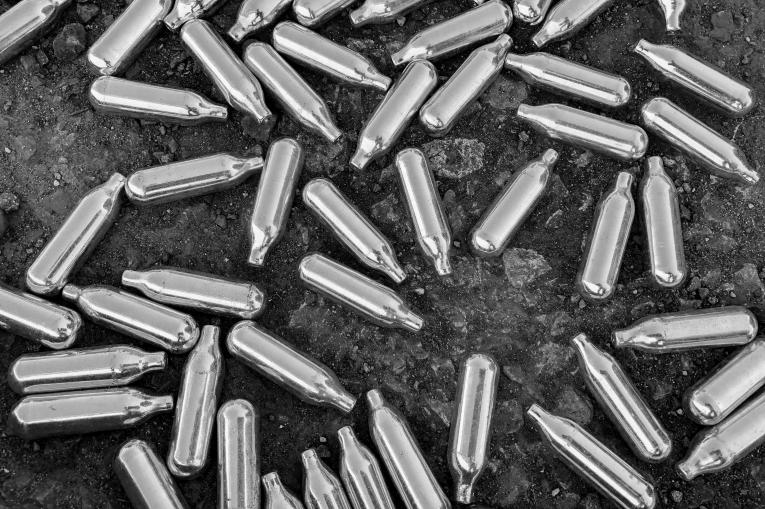
Help Your Mate

Before you go out
From keeping your phone charged to having a plan for getting home, read our tips for staying safe on a night out.
Tips for a night out
Synthetic substances
At the moment we are seeing changes in the make-up of the drugs that people are using across the UK – this can be that they are stronger than you might expect, or even that they are a completely different substance to what they were sold as.
Not knowing what substance you are taking, and how strong it might be could mean a higher chance of experiencing negative effects and can also increase the likelihood of an overdose.
The only way to be completely safe is to not take any substances at all, however if you do plan to use drugs then please consider the following information before taking.
Keeping yourself safe
• Avoid using alone. Have a trusted mate that isn’t using with you so that they can make sure you’re staying safe.
• Be extra cautious: Be careful about where and who you get your drugs from, and about the drugs you use. If you notice anything unusual about the drugs you are taking (eg: colour or smell) then it’s safer not to use them.
• Do not mix drugs: Mixing different substances is never a good idea and can be unsafe. The reactions can be highly unpredictable and dangerous.
• Stay low, go slow: What is in your drugs can change frequently and your dealer does not always know what is in them or how powerful they may be. So, if you are using, we would advise you take the smallest amount possible and give plenty of time for it to affect you before using anymore.
• Act fast to save life: If your mate ends up unconscious or is having difficulty breathing, call 999 and ask for an ambulance. Then, put them in the recovery position - it could save their life. Here's a quick guide to the recovery position but, if you don't remember how to do this, even getting them onto their side can make a real difference.
• Help your mate: If your mate is feeling panicked or anxious, take them to one side and keep them calm. It’s also important to look for signs of an overdose in those you are with (e.g. unable to wake someone up, loud ‘snoring’ or gurgling, blue/pale lips or fingertips, cold/clammy skin, difficulty breathing, slurred speech, rapid heart rate and/or chest pains, extreme panic, paranoia, hallucinations, overheating, shivering, twitches and tremors).
• Get support: If you want to speak to someone to learn more about substances or get help to make changes to your use, don’t be afraid to reach out to a local service. You’re not alone and there's nothing to be ashamed of. There is lots of help and support available just get in touch and we can help you with the rest.
Ketamine

What is ketamine?
Ketamine is a class B drug sometimes known as Ket or Special K. It commonly comes as a grainy white powder people snort or swallow.
If snorted it can take between 5-15 minutes to kick-in and if swallowed it can take between 15-25 minutes. The effects can last between 45 minutes and 2 hours but this will depend on how much you take and how you take it.
People may take ketamine recreationally to feel at peace, for greater spiritual experiences and to feel more connected with the world.
Ketamine can make you feel detached from reality, as though you are separated from your body and mind. You may experience hallucinations and it can make you lose the ability to move. This is known as a k-hole. Some people find this experience fun, others find it can be scary.
Mixing ketamine with other substances increases the risk of falling unconscious and vomiting which can be fatal if the person is not placed in the recovery position.
Keeping yourself safe
- Make sure you are in a good mental state before using ketamine. If you are already feeling down or anxious, it can exaggerate these feelings and give you a bad experience.
- It can be difficult to move around after using ketamine so make sure that you are in a safe environment to avoid any injuries.
- Avoid using alone. Have a trusted mate that isn’t using with you so that they can make sure you’re staying safe.
- Avoid eating food 90 minutes before taking ketamine to reduce the likelihood of nausea and vomiting.
- Don’t use or share banknotes to snort ketamine. They can spread infections and viruses. Use equipment like a straw and keep it to yourself.
- You can never be sure what your bag contains or is mixed with. Make sure it is finely crushed and take small amounts. Alternate nostrils and give it time to kick in before taking any more.
- If your mate is feeling panicked or anxious, take them to one side and keep them calm.
- If your mate ends up unconscious or is having difficulty breathing, call an ambulance. Then, put them in the recovery position - it could save their life. Here's a quick guide to the recovery position. If you don't remember, get them onto their side - even this can make a real difference.
What are the effects?
People take ketamine to experience:
- Calmness and serenity
- Being in a dream-like state
- Out-of-body experience (K-hole)
It can also cause unpleasant side effects, such as:
- Short term memory loss.
- Paranoia, especially with frequent use.
- Paralysis.
- Experiencing scary hallucinations.
There are other risks to taking ketamine:
- Can experience severe stomach pain often called k-cramps.
- It can cause long term memory problems.
- Long term use can damage the bladder and in severe cases can result in it being removed. Contact your GP if you notice pain when urinating or blood in your urine.
- Frequently using ketamine can lead to you becoming dependant on it. If you feel it is negatively affecting your life, please get in touch.
If it is an emergency stay with the person, call 999 and put them in the recovery position.
MDMA (Ecstasy)

What is MDMA/Ecstasy?
MDMA is a drug that alters your mood and increases your energy. It is sometimes referred to as MD, Mandy, or Molly. It is a popular party drug because it can make your surroundings and music feel more intense. It can also make you feel more affectionate towards other people.
MDMA usually comes as a white/grey powder or crystal that people swallow or dab onto their gums. The effects can take 20 minutes to an hour to occur, depending on the amount taken. It can last for several hours.
MDMA can also come in the form of Ecstasy. This is usually a colourful pill.
The comedown from using MDMA/ecstasy can make you feel depressed for several days.
MDMA/ecstasy is sometimes mixed with other things that can effect how strong it is. This means you can never be sure you’re taking what you think you are. Ecstacy pills are sometimes a combination of MDMA, caffeine, ketamine, MDA, methamphetamine or PMA.
Other drugs that have been mixed in might take longer to have an effect. It’s important to leave enough time between taking doses to avoid overdosing.
Keeping yourself safe
- Because the strength of MDMA can be so unpredictable, please go slow… Start by taking either a small amount of powder (the size of a matchstick tip) or a quarter of a pill and wait an hour to let it kick in before you take any more.
- MDMA can raise your body temperature – to avoid overheating, take regular breaks from dancing.
- Drink water – but not too much! MDMA can cause the body to release a hormone which stops it from making urine; slowly sip no more than 1 pint of water over an hour.
- Mixing different substances is never a good idea and can be dangerous. This is the case when mixing MDMA with substances like cocaine or alcohol. The reactions can be highly unpredictable and dangerous.
- If your mate is feeling panicked or anxious, take them to one side and keep them calm. If they experience seizures, nausea or vomiting or difficulty breathing, call 999 immediately and tell them what has been taken.
- If your mate ends up unconscious or is having difficulty breathing, call an ambulance. Then, put them in the recovery position - it could save their life. Here's a quick guide to the recovery position. If you don't remember, get them onto their side - even this can make a real difference.
What are the effects?
People take MDMA to experience/feel:
- Sense of happiness
- Enhance their clubbing/dance experience
- More awake and alert
- Talkative and sociable
It can also cause unpleasant side effects, such as:
No appetite
Change in body temperature
Panic attacks
Unexpected emotions
Gurning (tightening and moving of the jaw)
There are other risks to taking MDMA:
- Heatstroke and dehydration
- Overhydration (too much water)
- Depression
- Nausea and decreased appetite
- Taking too much can cause an overdose. Signs to look out for include abdominal cramping, elevated body temperature, nausea and vomiting.
If it is an emergency stay with the person, call 999 and put them in the recovery position.
Cocaine

What is cocaine?
Cocaine is a class A drug. It’s sometimes known as coke, sniff, blow or Charlie. It commonly comes as a white powder people snort as small lines.
Cocaine is a stimulant that can make you feel excited and full of energy. It will also make your heart beat faster and you might sweat a lot more. How long the effects last can vary depending on how much you take, how pure it is, and whether you’ve eaten.
Cocaine can look like other white powdered substances, so you can never be sure you’re taking what you think you are. It is often ‘bulked out’ with other things such as caffeine, talcum powder or laundry detergent.
Keeping yourself safe
- Don’t use or share banknotes to snort cocaine. They can spread infections and viruses. Use equipment like a straw and keep it to yourself.
- You can never be sure what your bag contains or is mixed with. Make sure it is crushed and take small amounts. Try and alternate nostrils, and don’t rush to take more too soon.
- Try not to mix cocaine and alcohol, or any other drugs. Lots of people don’t use cocaine while sober, but decide to when they are drunk.
- Drugs and alcohol together can put an extra strain on your heart and liver.
- Make sure you drink enough water to stay hydrated. It will also make you less likely to mix cocaine and alcohol.
- If your mate is feeling panicked or anxious, take them to one side and keep them calm. If they have chest pains or trouble breathing, call 999 right away and tell them what they’ve taken.
- If your mate ends up unconscious or is having difficulty breathing, call an ambulance. Then, put them in the recovery position - it could save their life. Here's a quick guide to the recovery position. If you don't remember, get them onto their side - even this can make a real difference.
What are the effects?
People take cocaine to feel:
- More talkative and sociable
- More confident
- Euphoric (intense excitement and happiness)
Cocaine can cause unpleasant side effects, such as:
- Not being able to sleep and feeling restless.
- Mood changes, such as feeling anxious or irritable.
- Being overconfident, violent or aggressive.
- Nosebleeds and a constant runny nose. Using lots of cocaine can damage your nasal septum (the middle bit) and lead to infections.
There are other risks to taking cocaine:
- It can do long-term damage to your mental health, including paranoia, hallucinations, and psychosis.
- It can make you more likely to have a heart attack or a stroke.
- Taking too much can cause an overdose. Signs to look out for include confusion, seizures, vomiting and trouble breathing.
- Using lots of cocaine can lead to you becoming dependant on it. If you notice it negatively affecting your life, please get in touch.
Nitrous Oxide

What is nitrous oxide?
Nitrous oxide, sometimes known as NOS or laughing gas, is a drug that dentists sometimes use as an anaesthetic. People also use it for cooking, which is why it’s easily available.
People also take nitrous oxide as a recreational drug. Usually, they fill a balloon with the gas from the canister and inhale it.
We don’t understand much about how nitrous oxide works on people, but it can make you feel happy and relaxed. It can also make you feel dizzy and sick. People often take it at parties, festivals and outside bars and nightclubs.
The effects of nitrous oxide start very quickly after you’ve taken it, and they go away very quickly.
Is nitrous oxide illegal?
Nitrous oxide is a Class C drug and it is therefore illegal to have it in your possession.
There are some exceptions for people who use nitrous oxide in their work, such as medical or culinary staff. You might be expected to show evidence that you have nitrous oxide for a legitimate reason. It is illegal to have it on you without one of these reasons.
You can be arrested and charged for having nitrous oxide in your possession. You might get an unlimited fine, a visible community punishment, or a caution which will appear on your criminal record. If you get caught multiple times, you could even get a prison sentence of up to two years.
Keeping yourself safe
- Always use a balloon to inhale. Inhaling directly from a dispenser, tube, or mask can be dangerous. Never inhale from a bag over the head.
- Be careful not to confuse nitrous oxide with another gas or volatile substance which can have greater risks.
- Do not inhale whilst standing up or where you could fall and injure yourself (eg near a steep drop).
- If you have low blood pressure or mental health problems, nitrous oxide can make you ill.
- If you experience negative effects or ‘pins and needles’ stop using immediately.
- If you are going to use nitrous oxide, don’t use in small confined spaces, its better outdoors, but not near any obvious risks such as roads.
- It is best not to drink alcohol while using nitrous oxide – both drugs are depressants and using them together increases the risk of ill effects and accidents.
- As with all drugs, it is better not to use nitrous oxide alone. Having people, you trust and who have knowledge of first aid around is always a good thing.
- If your mate ends up unconscious or is having difficulty breathing, call an ambulance. Then, put them in the recovery position - it could save their life. Here's a quick guide to the recovery position. If you don't remember, get them onto their side - even this can make a real difference.
What are the effects?
People take nitrous oxide to experience:
- A feeling of euphoria
- Laughter, relaxation, tingling in your ears and other feelings in your body
It can also cause unpleasant side effects, such as:
- Dizziness, feeling sick and headaches
- Losing control of your body movements
- Accidents caused by you feeling dizzy
There are other risks to taking nitrous oxide:
- Inhaling nitrous oxide straight from the canister is very dangerous.
- Some people inhale nitrous oxide by putting a plastic bag over their head. This is very dangerous, and some people have died doing it.
- Doing lots of it can cause sore, red eyes and irritate the parts of your body that help you breathe well.
- It can cause irregular heartbeats.
- Doing lots of it can make you low in vitamin B12. This can cause anaemia (low iron), nerve damage and other problems.
Comedowns

What goes up must come down!
The easiest way to avoid a comedown is not to use drugs in the first place. However, if you’re planning a night involving drugs, it’s a good idea to know some top tips on how to manage the morning after.
What is a comedown?
After using substances, you may notice that you feel differently as the effects start to wear off. You might feel tired, low in mood, irritable, nauseous or even experience flu-like symptoms. This is what people mean when they refer to a comedown.
When you use drugs, it releases excessive amounts of serotonin in the brain. Serotonin is the hormone that controls your happiness and gives you that euphoric feeling. During a comedown, your serotonin levels are low, which can be an uncomfortable experience. This can last a few days depending on how long you’ve been using substances and the amount taken.
You may be tempted to use more substances to reduce this negative feeling. This can lead to dependency. Instead, check out our top tips below.
Help your mate with their comedown
Comedowns can be different for each person. Some people have worse comedowns than others so check in with your mates. If they are really struggling here’s some advice to share with them:
1. Explain to them what is happening to their body physically and reassure them that it’s temporary. This feeling will pass.
2. Help them prepare a healthy meal – remember, bananas, nuts and vegetables are great comedown companions.
3. Spend some time together. Have fun and try to laugh lots!
4. Encourage them to get lots of sleep.
5. If you’re really worried about their physical symptoms or feel they may harm themselves, tell a trusted adult and get them to A&E.
If it is an emergency stay with the person, call 999 and put them in the recovery position.
Tips for looking after yourself
If you’re feeling rubbish the day after a big night, here are some tips for helping you feel better mentally and physically during a comedown.
Physical Recovery
1. Take a break from using substances. Allow your body and brain time to recover and your serotonin to regenerate.
2. Boost your serotonin and eat a healthy diet. Bananas, dark chocolate and nuts are healthier ways to boost your serotonin levels and can shorten your comedown.
3. Get plenty of sleep to help your body recover. Pineapple can trigger the production of the hormone melatonin, which can help you get a good night’s sleep if you’re struggling.
4. Drink plenty of water, orange juice or isotonic drinks. This will help rehydrate your body and replace your salt levels.
5. If you are on prescribed medication, get some advice from your GP about whether these should be taken during a comedown.
Mental Recovery
1. Do some gentle exercise. Going for a walk releases endorphins which can help improve your mood.
2. It’s common to feel low and depressed during a comedown. Do something that makes you feel happy - put your favourite film on. Pet your dog. Listen to some music.
3. As tempting as it is, don’t isolate yourself. Check in with a mate or call Samaritans on 116 123.
4. If you’re worried about hurting yourself or someone else, contact your GP or go to A&E and tell them what you’ve taken so that they can support you.
Online support
Share this with your mates:


